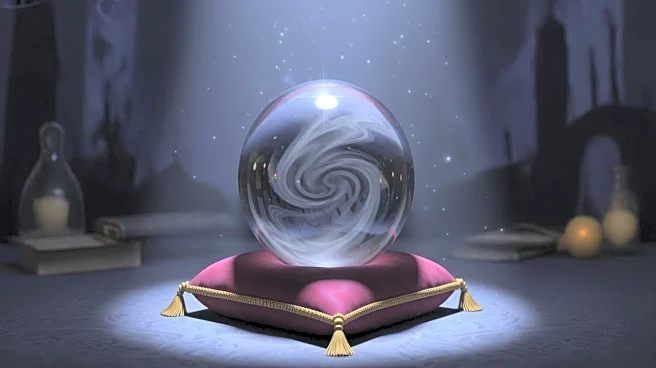What's Happening?
NBC's musical special 'Wicked: One Wonderful Night' aired with a notable omission from Marissa Bode's introduction of Cynthia Erivo's performance of 'Defying Gravity.' During the live taping, Bode's introduction included a reference to standing up to a 'power-hungry
dictator,' which was cut from the broadcast. The special, based on the stage musical 'Wicked,' features anti-authoritarian themes, with the character Elphaba opposing a corrupt despot. Bode, known for her role as Nessarose Thropp and her advocacy for disability rights, has been vocal about political issues, including a recent TikTok post defending her stance against conservative activist Charlie Kirk.
Why It's Important?
The decision to cut Bode's politically charged comment highlights the ongoing tension between entertainment and political expression. This move by NBC may reflect a broader industry trend of avoiding overt political statements in mainstream broadcasts to maintain a neutral stance. The omission could impact public perception of the network's editorial choices and its approach to politically sensitive content. For audiences, it raises questions about the role of art in political discourse and the boundaries of free expression in entertainment.
What's Next?
Following the broadcast, 'Wicked: One Wonderful Night' is set to stream on Peacock, potentially reaching a wider audience. The decision to cut Bode's comment may prompt discussions among viewers and critics about the balance between artistic expression and network policies. NBC and Bode's representatives have yet to comment on the omission, leaving room for further developments or statements from involved parties. The incident may also influence future productions and how they handle politically sensitive content.
Beyond the Headlines
The cut highlights the complex relationship between entertainment and politics, where networks must navigate audience expectations and potential backlash. Bode's advocacy for disability and civil rights, coupled with her political outspokenness, underscores the intersection of personal identity and public platforms. This incident may encourage other artists to consider how their political views are presented and perceived in mainstream media.















